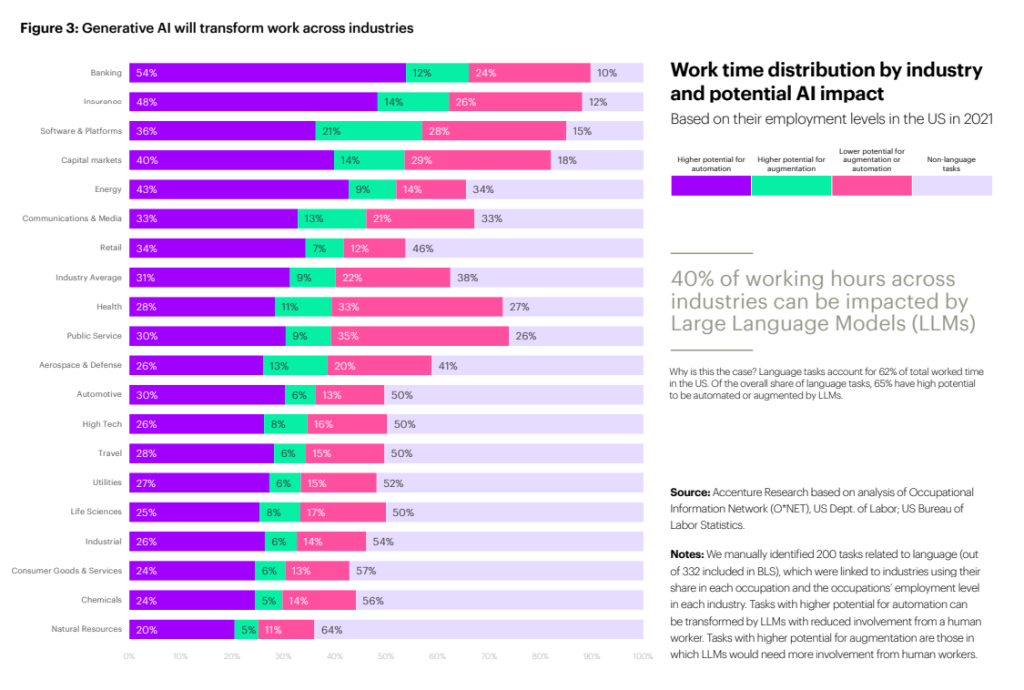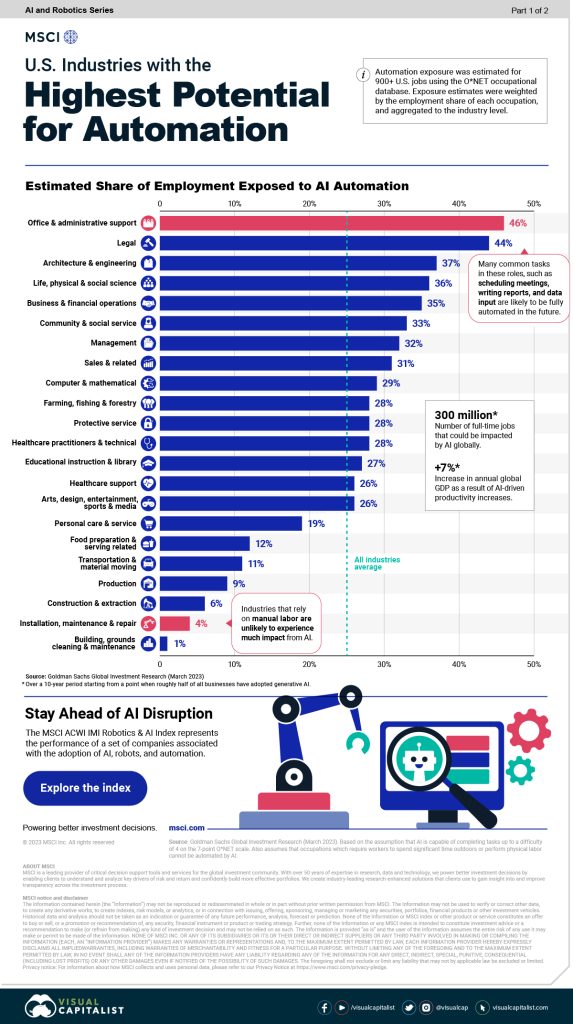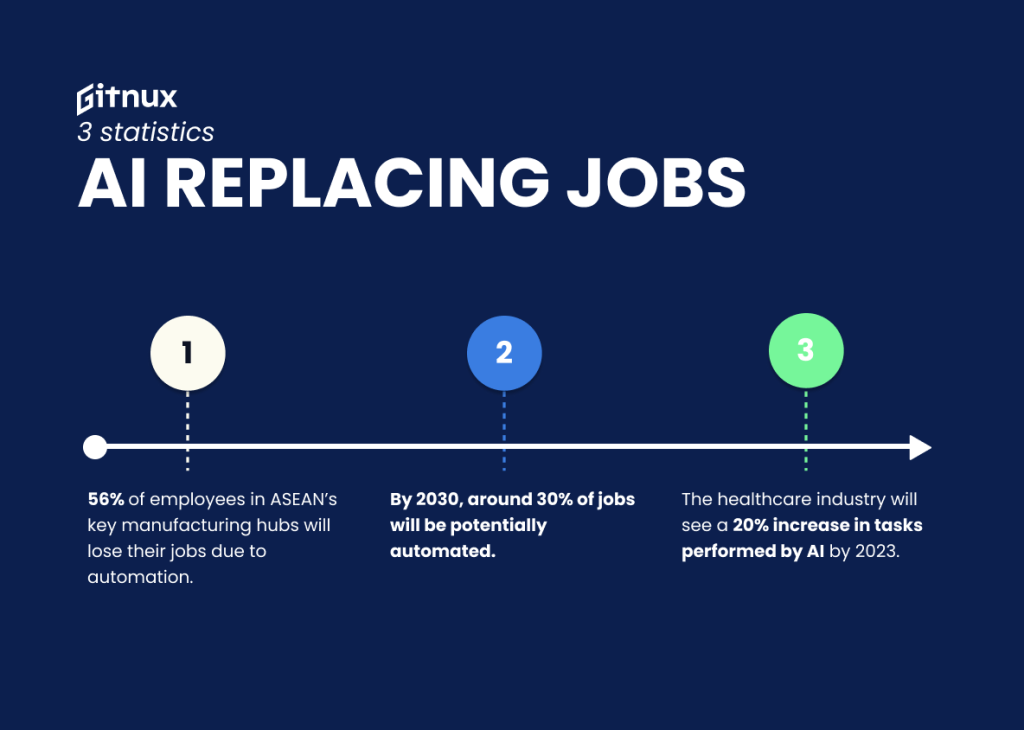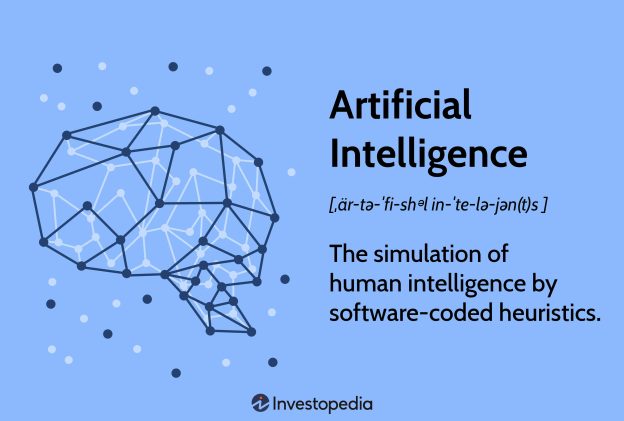Imagine a future where Artificial Intelligence (AI) takes over various industries, rendering human workers obsolete. It’s a thought that both fascinates and unnerves us. As AI technology continues to advance at a rapid pace, the question on everyone’s mind is: which industry will be the first to succumb to the rise of the machines? Will it be manufacturing, healthcare, transportation, or something entirely unexpected? In this article, we will explore the potential impact of AI on different industries and the implications it may have on our society and economy.
What Industry Will Be Replaced By AI?
Artificial intelligence (AI) has already started to revolutionize various industries, and its impact continues to grow. From healthcare to transportation, banking to journalism, AI is transforming the way we work and live. In this article, we will explore the different industries that are adopting AI technologies and how they are being transformed.
1. Healthcare Industry
In the healthcare industry, AI is enabling significant advancements in medical diagnostics. With the help of machine learning algorithms, AI systems can analyze patient data, such as medical images, lab results, and electronic health records, to detect diseases and make accurate diagnoses. This not only reduces the workload on healthcare professionals but also improves the overall accuracy and efficiency of diagnostics.
Additionally, AI is automating administrative tasks in healthcare facilities. From appointment scheduling to billing and insurance processing, AI-powered systems streamline these repetitive tasks, allowing healthcare professionals to focus more on patient care. This automation not only saves time and resources but also reduces the risk of errors and improves the patient experience.
Robotic surgery is another area where AI is making significant progress. With the help of AI algorithms, surgeons can perform complex procedures with enhanced precision and accuracy. Robots are capable of enhancing a surgeon’s abilities, offering a more stable hand, and reducing the risk of human error. This technology is revolutionizing surgical practices and leading to improved patient outcomes.
In drug discovery and development, AI is playing a crucial role in accelerating the process. AI algorithms can analyze a vast amount of data, including genetic information, clinical trial data, and scientific literature, to discover potential drug candidates and optimize their effectiveness. This saves time and resources in the drug development process, ultimately leading to more efficient and targeted treatments.
To enhance patient care and support, virtual nursing assistants are being implemented. These AI-powered systems can provide personalized support, answer patient queries, remind them about medication schedules, and offer general health recommendations. Virtual nursing assistants can be particularly beneficial for patients in remote areas or those requiring frequent monitoring.

This image is property of s3.cointelegraph.com.
2. Manufacturing Industry
The manufacturing industry has been at the forefront of adopting AI technologies to improve efficiency and productivity. Automated assembly lines have revolutionized manufacturing processes, drastically reducing the need for manual labor. Robots equipped with AI algorithms can perform repetitive tasks with precision and speed, leading to faster production rates and higher quality products.
Quality control and inspection are critical in the manufacturing industry, and AI plays a crucial role in ensuring product consistency and compliance. AI-powered systems can analyze product images or sensor data in real-time to detect defects or anomalies, allowing manufacturers to take corrective actions immediately. This improves product quality and reduces the risk of faulty goods reaching the market.
Predictive maintenance is another area where AI excels in the manufacturing industry. By analyzing machine data and performance indicators, AI algorithms can predict equipment failures before they occur. This enables manufacturers to schedule maintenance activities proactively, reducing downtime and increasing operational efficiency.
Inventory management is one of the most complex and challenging tasks in the manufacturing industry. AI-powered systems can analyze historical sales data, market trends, and other relevant factors to optimize inventory levels. This ensures that manufacturers maintain the right stock at the right time, reducing costs associated with excess inventory or lost sales due to stockouts.
Supply chain optimization is another area where AI is making a significant impact. AI algorithms can analyze various factors, such as customer demand, transportation costs, and inventory levels, to optimize supply chain operations. This results in faster and more cost-effective delivery of goods, enhanced customer satisfaction, and improved overall supply chain performance.
3. Transportation Industry
The transportation industry is rapidly adopting AI technologies to improve transportation efficiency and safety. Self-driving vehicles have the potential to revolutionize the way we travel. AI algorithms enable these vehicles to navigate and make decisions in real-time, reducing the risk of human error and accidents. Self-driving vehicles have the potential to significantly reduce traffic congestion and improve fuel efficiency.
Traffic management systems powered by AI can analyze real-time traffic data from various sources, such as GPS and sensors, to optimize traffic flow and reduce congestion. These systems can predict traffic patterns, suggest alternate routes, and adjust traffic signals in real-time, leading to smoother and more efficient transportation.
Route optimization is crucial for logistics and transportation companies. AI algorithms can analyze various factors, such as distance, traffic conditions, and delivery time windows, to optimize route planning. This not only reduces fuel consumption and transportation costs but also improves delivery accuracy and customer satisfaction.
Package delivery is another area where AI is transforming the transportation industry. AI-powered systems can optimize delivery routes, schedule deliveries based on demand, and even utilize drones or robots for last-mile delivery. This streamlines the delivery process, reduces delivery times, and improves overall operational efficiency.
AI customer service is being implemented in the transportation industry to enhance the overall customer experience. Chatbots and virtual assistants powered by AI can handle customer inquiries, provide real-time information about flights or train schedules, and offer personalized recommendations. This enables transportation companies to provide 24/7 support, reduce customer wait times, and improve customer satisfaction.

This image is property of www.visualcapitalist.com.
4. Retail Industry
The retail industry is embracing AI technologies to enhance customer experiences and streamline operations. Automated checkout systems, such as self-checkout kiosks, are becoming increasingly common in retail stores. These systems use AI algorithms to scan and process items, reducing the need for manual labor and improving the overall speed and convenience of the checkout process.
Personalized marketing is made possible with AI-powered systems. Retailers can analyze customer data, such as purchase history, browsing behavior, and demographics, to personalize marketing messages and offers. This enables retailers to target their customers more effectively, increase sales conversions, and enhance customer loyalty.
Inventory management is critical for retail businesses, and AI is revolutionizing this aspect. AI-powered systems can analyze historical sales data, market trends, and other factors to predict future demand accurately. This helps retailers optimize inventory levels, reducing costs associated with excess inventory or lost sales due to stockouts.
Demand forecasting is another area where AI algorithms excel. By analyzing various factors, such as sales data, market trends, and even weather conditions, AI can predict future demand accurately. This enables retailers to plan their procurement, production, and promotional activities effectively, ensuring optimal product availability and customer satisfaction.
Chatbots and virtual shopping assistants are becoming increasingly popular in the retail industry. These AI-powered systems can assist customers in finding products, answering inquiries, and even making personalized recommendations. This provides a personalized and interactive shopping experience, even in online retail environments.
5. Banking and Finance Industry
The banking and finance industry has been an early adopter of AI technologies, leveraging them to improve operational efficiency and customer service. Fraud detection and prevention is a critical area where AI algorithms are deployed. By analyzing large volumes of data and detecting anomalies, AI systems can identify potential fraudulent activities and alert the relevant authorities. This protects both customers and financial institutions from financial losses and reputational damage.
Algorithmic trading is another domain where AI is transforming the banking and finance industry. AI algorithms can analyze market data, news, and other relevant information to execute trades with speed and accuracy. This enables financial institutions to capitalize on market opportunities and optimize their trading strategies.
Loan underwriting is a time-consuming process in the banking industry. AI-powered systems can analyze large volumes of data, such as credit history, income levels, and financial statements, to evaluate loan applications and determine creditworthiness. This speeds up the underwriting process, reduces manual errors, and improves overall efficiency.
Financial planning and wealth management are being revolutionized by AI technologies. AI-powered systems can analyze customer financial data, investment goals, and risk tolerance to provide personalized investment advice and recommendations. This enables financial institutions to offer customized investment strategies, improve portfolio performance, and enhance the overall customer experience.
Customer service automation is transforming the way banks and financial institutions interact with their customers. AI-powered chatbots and virtual assistants can handle customer inquiries, provide account information, and even execute basic transactions. This reduces the workload on human customer service agents and provides customers with 24/7 support.

This image is property of assets.newatlas.com.
6. Customer Service and Call Centers
The customer service and call center industry is experiencing a major transformation with the adoption of AI technologies. Virtual customer service agents, powered by AI, are increasingly being used to handle customer inquiries and resolve issues. These intelligent systems can understand natural language, provide relevant information, and even escalate complex cases to human agents. This enables organizations to provide more efficient and personalized customer support.
Automated chatbots are becoming a familiar sight on websites and social media platforms. These AI-powered systems can engage with customers, answer frequently asked questions, and provide basic support. Chatbots are available 24/7, ensuring customers receive immediate assistance and reducing the burden on human customer service agents.
Natural language processing (NLP) is a key technology behind AI-powered customer service systems. NLP enables machines to understand and respond to human language, allowing for seamless and natural interactions between customers and virtual agents. NLP algorithms continue to be optimized, leading to more accurate and context-aware responses.
Real-time speech recognition is another area where AI is transforming customer service. AI algorithms can transcribe and analyze spoken language in real-time, allowing organizations to automatically route calls, gather customer feedback, and extract valuable insights from customer conversations. This technology enhances call center efficiency and improves the overall customer experience.
Automated ticketing systems are streamlining the process of logging and tracking customer issues. AI-powered systems can analyze customer inquiries, classify them, and automatically assign them to the appropriate department or support agent. This reduces manual effort and ensures that customer issues are addressed in a timely manner.
7. Legal and Paralegal Services
The legal and paralegal services industry is embracing AI technologies to improve efficiency and streamline legal processes. Electronic discovery, or e-discovery, involves the identification, collection, and analysis of digital evidence in legal cases. AI algorithms are capable of analyzing vast amounts of data, including emails, documents, and audio recordings, to identify relevant evidence. This significantly speeds up the e-discovery process, reduces costs, and improves the accuracy of legal outcomes.
Contract analysis is another area where AI is making an impact. AI-powered systems can analyze contracts and other legal documents, extract relevant information, and identify potential risks or anomalies. This saves time and effort for legal professionals, allowing them to focus on higher-value tasks.
Legal research is a critical component of the legal profession, and AI can assist in this area. AI-powered systems can analyze vast amounts of legal literature, including cases, statutes, and regulations, to provide legal professionals with relevant information and precedents. This accelerates the research process and improves the quality of legal advice.
Predicting legal outcomes is a complex task, but AI algorithms are proving to be effective in this domain. By analyzing historical case data, legal professionals can use AI to predict the likely outcomes of legal disputes. This enables them to assess the risks and develop informed legal strategies.
Document automation is transforming the process of generating legal documents. AI-powered systems can generate contracts, wills, and other legal documents based on predefined templates and user input. This saves time, reduces errors, and improves overall efficiency in the legal document preparation process.

This image is property of blog.gitnux.com.
8. Education Industry
The education industry is witnessing significant changes with the integration of AI technologies. AI tutors and personalized learning platforms are becoming increasingly popular. These AI-powered systems can adapt to individual student needs, providing personalized instruction and feedback. AI tutors can identify areas of weakness, offer additional resources, and track student progress, resulting in more efficient and effective learning experiences.
Automated grading is streamlining the process of assessing student work. AI algorithms can analyze written responses, essays, and even programming code to provide objective and timely feedback. This saves time for teachers and enables them to focus on providing more personalized instruction.
Smart content generation, supported by AI, is enhancing the creation of educational resources. AI algorithms can analyze large amounts of data, such as textbooks, research papers, and multimedia content, to generate customized learning materials. This leads to more engaging and relevant content for students.
Virtual reality (VR) simulations are revolutionizing hands-on learning experiences. AI-powered VR simulations can recreate real-life scenarios, allowing students to practice and apply their knowledge in a safe and controlled environment. This enhances learning retention and engagement, particularly in fields that require practical skills.
Adaptive learning platforms are leveraging AI to personalize learning pathways for students. AI algorithms can analyze student performance data, identify areas of weakness, and recommend targeted learning activities. This ensures that students receive the right content and support at the right time, optimizing their learning outcomes.
9. Agriculture and Farming
The agriculture and farming industry is embracing AI technologies to enhance productivity and sustainability. Autonomous farm equipment, such as robotic harvesters or drones, can perform tasks such as planting, irrigation, and harvesting with high precision and efficiency. This reduces the reliance on manual labor, increases productivity, and minimizes resource wastage.
Precision farming and crop management benefit from AI technologies. AI-powered systems can analyze various factors, such as soil conditions, weather patterns, and crop growth data, to optimize farming practices. This enables farmers to make data-driven decisions, such as adjusting irrigation schedules or applying fertilizers more effectively, resulting in higher crop yields and reduced environmental impact.
Livestock monitoring is a critical aspect of animal farming. AI-powered systems can analyze sensor data, such as animal behavior, health indicators, and feeding patterns, to detect any anomalies or signs of distress. This allows farmers to take prompt actions to ensure animal welfare and prevent diseases.
Crop disease detection is essential for early intervention and prevention of crop damage. AI algorithms can analyze images or sensor data to identify signs of disease or pest infestation. This enables farmers to take appropriate measures, such as targeted pesticide applications or crop rotation strategies, to mitigate the spread and impact of diseases.
Automated harvesting is transforming the agriculture industry. AI-powered systems can analyze crop maturity indicators, such as color or size, and automatically harvest crops when they are ready. This improves operational efficiency, reduces labor costs, and ensures optimal harvest quality.
This image is property of static.ffx.io.
10. Journalism and News Media
The journalism and news media industry is undergoing significant changes with the integration of AI technologies. Automated news writing is becoming increasingly common, particularly for news updates or reports based on structured data, such as sports scores or financial results. AI algorithms can analyze data and generate news articles in real-time, reducing the time and effort required for manual reporting.
Data-driven reporting is enhanced by AI technologies. Journalists can leverage AI algorithms to analyze large datasets, detect patterns or trends, and generate insights for data-driven stories. This enables journalists to provide more in-depth and accurate reporting, supported by data analysis.
Content curation is another area where AI is making an impact. AI-powered systems can analyze vast amounts of content from various sources, such as news articles, social media posts, and videos, to curate personalized content for readers. This ensures that readers receive relevant and engaging content tailored to their preferences.
Fact-checking is a critical component of journalism, and AI algorithms can assist in this process. AI-powered systems can analyze claims or statements against factual databases or reliable sources to assess their accuracy. This aids journalists in verifying information, reducing the risk of disseminating false or misleading information.
Real-time news monitoring is made possible by AI technologies. AI algorithms can analyze news articles, social media posts, and other sources of information in real-time to detect emerging trends or events. This enables journalists to stay updated and provide timely reporting on breaking news or developing stories.
In conclusion, AI is transforming various industries, revolutionizing the way we work and live. From healthcare to transportation, banking to journalism, AI technologies are enhancing efficiency, improving decision-making, and providing valuable insights. As AI continues to advance, its impact will only grow, leading to further innovation and opportunities across various sectors.

